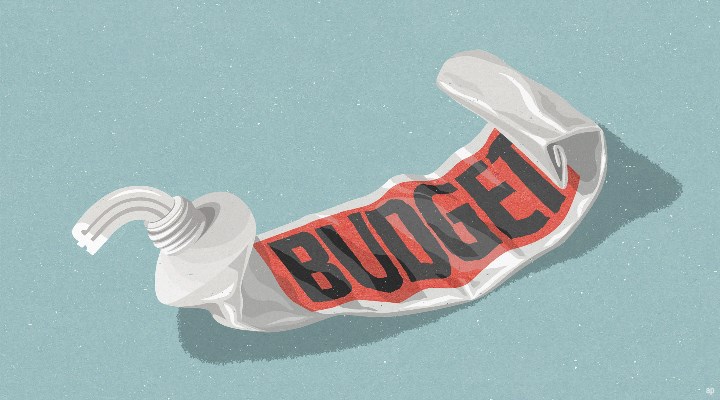
UK interest rates have been raised to 1.25% today, as economists expected, but some Bank of England policmakers had voted for a bigger increase. The move follows the Federal Reserve’s more aggressive hike of 75 basis points last night, and the Bank’s 25 basis point increase in May and recession warning.
Monetary policy committee (MPC) members voted 6-3 to raise interest rates from 1% to 1.25%, with the minority backing a rise to 1.5%.
This month’s meeting, unlike May's, is not accompanied by a monetary policy report (formerly the inflation report), which usually carries more detailed forecasts on economic growth. There’s no interest rate decision in July, and August will see the latest quarterly report accompanying the rate-setting meeting.
The statement accompanying today’s decision revisited some of the details of the May report, but the Bank noted that there has been significant movement in financial markets since mid-May, even though economic data has been relatively thin on the ground. One significant fiscal event since the last Bank meeting was the Chancellor’s windfall tax and energy bill giveaway. BoE economists expect this boost to add to both economic growth and inflation this year.
The BoE is forecasting a fall in GDP of 0.3% in the second quarter, which is now drawing to a close. We''ll get the Q2 numbers at the end of July, if the ONS follows its usual schedule. April data, released at the start of this week, was worse than expected, cementing the argument that a slowdown is inevitable.
Otherwise the picture painted in May remains the same: inflation is soaring, the labour market is tight and equity and bond markets are flagging inflation and recession risk with no sign of an end to the war in Ukraine.
In recent weeks we have looked in detail at the Bank of England’s strategy and whether it can be effective in taming inflation, and if a recession will make a dramatic impact on the UK investment landscape. CPI inflation is now expected to hit 11% towards the end of this year, before falling back to target in the coming years.
Given this is the Bank’s remit, it’s no surprise to see the message reiterated that monetary policy tools are still fit for purpose in returning inflation to 2%.
“Monetary policy will ensure that, as the adjustment to these shocks occurs, CPI inflation will return to the 2% target sustainably in the medium term,” the statement said.
Some experts have argued that the Bank is being too cautious in its approach, however, especially compared to the Federal Reserve's approach. (The European Central Bank has yet to raise rates, but is expected to in its July meeting.)
The Reaction
As usual, the reaction from spokespeople and lobbyists is pouring in fast.
Les Cameron, financial expert, M&G Wealth:
“With the current high levels of inflation we’re experiencing, a modest increase to savings rates would still mean that most cash or near-cash savers, for example National Savings & Investments [customers], would see their wealth being eroded in real terms. Of course, many of those with cash savings are pensioners who spend a higher proportion of their savings on energy costs, which we know are increasing at a much higher rate even than the headline inflation rates. The increasing cost of living will mean those repaying debt not on a fixed rate will no doubt feel the pinch even more if rates rise.
Alan Custis, managing director, Lazard Asset Management:
“The MPC continues to balance the inflationary effects on the economy, with the very real chance that they tighten too much and the UK economy lurches into a full blown recession. Andrew Bailey […] has been slow in tackling inflation, for which he has come in for some criticism by MPs, and this move today balances all of the factors that are currently weighing on the economy.”
Chris Beauchamp, chief market analyst, IG Group:
Once again the BoE looks like the timid cat next to the Fed’s roar against inflation, with just a 25bps hike. Accompanying comments about being prepared to act ‘forcefully’ on inflation will do little when the actual evidence shows the committee remains broadly cautious. A 6-3 vote on 25bps means that the sterling bulls will have little to back up any attempt to push the pound higher against the dollar, and $1.20 will likely be tested once more.
Laith Khalaf, Head of Investment Analysis, AJ Bell:
“The Bank of England is playing a game of slowly, slowly catchy inflation, rather than the shock and awe tactics being employed across the Atlantic. Despite the UK starting to tighten monetary policy first, interest rates are now higher in the US. Markets will no doubt seize on this as a sign the Bank of England has bottled it, but an incremental strategy allows the rate setting committee to observe more data as it comes in, and fine tune its approach as circumstances dictate. The US economy also has more long-term fixed mortgages than the UK, which makes interest rates across the pond a blunter policy tool, so the Fed has to create a bit of extra bang to have the same effect on a buck.
“No-one should labour under the misapprehension that interest rate rises are going to do anything about eye-watering levels of inflation in the short term. Our inflationary problem is being driven by a supply shock to energy markets stemming from the conflict in Ukraine, and the ensuing sanctions, and no number of interest rate rises will solve that problem. What the Bank is trying to do is head off second order inflationary effects becoming ingrained in the system and taking on a life of their own.”




























